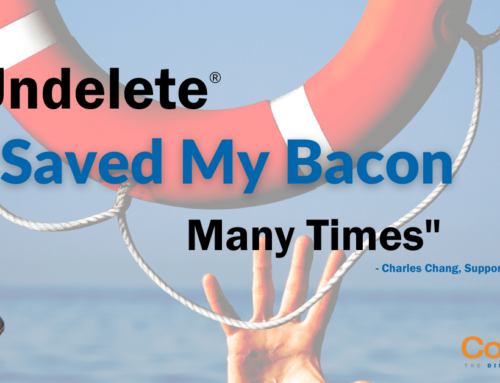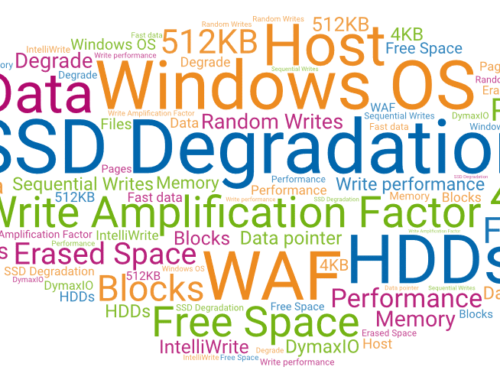If you’re a Windows Home Server enthusiast, you’ve no doubt heard the unfortunate news that Drive Extender (DE) is being removed from the upcoming new version of WHS (codename Vail).
DEv2 was, by all accounts, an ambitious project, designed to solve many storage problems for numerous Windows platforms (Aurora, Vail, Breckenridge). We’d had written about a technology partnership planned to assist with “garbage collection” for DE. The need to call in Diskeeper Corporation, I believe, was an indicator of the ultimate cause for its cancellation. Apart from time/resources, a.k.a. “money”, there is no reason MS could not have solved the problem we were asked to help with, or any other problems for that matter.
The talent on the WHS team was certainly there, we know them well. The Technical PM for DE was a seventeen year vet at Diskeeper Corporation having formerly been the PM here for Undelete. A key consultant on the project was a file system guru who had worked with Diskeeper in the 1990’s to implement kernel level code into Windows to make defrag, as we know it today, possible. We’ve had numerous meetings over the past many months and knew their challenges well.
WARNING! Objects in mirror are closer farther that they appear.
In science and technology, the end product often looks closer at the outset that it really is. You can only predict so much at the start. As you move along in research and development, many unknowns crop up that you have to understand and address. When you do finally reach the end of the road and look back, you realize you had to go a lot farther to get to the finish that you expected.
One case in point is the reason DEv2 used separate drive letters for each share. That was a solution to ensure that Windows Search would function. Windows Search does not work on “mounted volumes”, which would be a superior user experience to assigning separate letters to each volume/share. Could Windows Search have been enhanced to support mounted volumes – yes (it is just software after all). However, that is another team at MS.
Now if WHS revenue was flooding billions in the MS bank account, Windows Search limitations would have been resolved lickity-split. As Paul Thurrott noted in an article [the link to the article is now invalid. Articles now on https://www.itprotoday.com/ Paul Thurrott has his own site now too https://www.thurrott.com/] yesterday, WHS is a niche product, that probably doesn’t generate tremendous revenue for Microsoft. We developed Diskeeper HomeServer edition because we here love WHS (the company founder and top technical execs are all avid users), but mostly because we are committed to Microsoft’s success – which is ultimately good for our business.
Niche products and pilot projects tend to be sandboxed and rarely get access to resources from other division within a company – and generally that is the right thing to do.
At the end of the day, I believe (just my personal opinion) that the WHS team simply had to develop too many features for too many purposes and had to invent too many workarounds to make those features work. The decision to cut features and make a deadline is the most difficult one for software managers.
Anyway, I hold out hope that we’ll see DE/DEv2 in the future. DE itself can be a solution foundation for future of Windows storage. Just one thought that crosses my mind is “what if DE merged local and cloud storage?” A user enabling folder duplication, if cloud storage services were activated, could replicate right into the cloud without the need for another layer of backup products/staging?
There is still significant value in Vail. The thing that really distinguishes WHS from NAS devices is that WHS is a platform whereas NAS is an appliance. Appliances will do next year the same thing they do today – which may work for many. A platform, through new/added software, can be customized to be a great variety of things. You build onto the platform whatever you want it to do for you, and as you grow, it can grow with you. Because of that potential, it’s amassed a base of passionate users with very high expectations (rightfully so).
One cool thing about WHS is the ecosystem that has evolved around it. I fully expect that any shortcomings in Vail will be addressed soon-enough in after market solutions, so I’ll wait before I pass judgment on Vail and decisions to upgrade.



Leave A Comment
You must be logged in to post a comment.